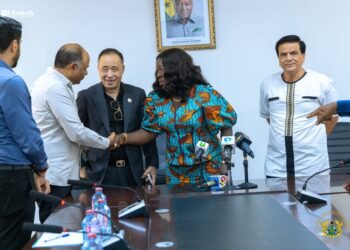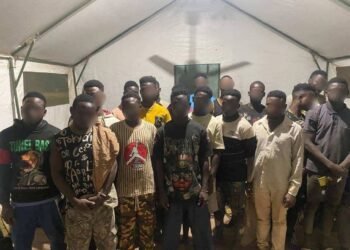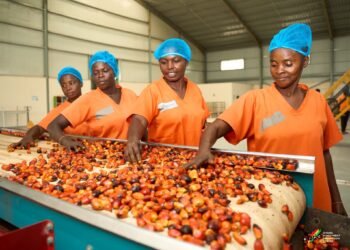The Ghana Export Promotion Authority (GEPA) has partnered TFO Canada, a Canadian trade agency, to improve the capabilities of women in agribusiness and textiles, allowing them to trade more easily on the worldwide market.
Experienced exporters, women who do indirect exports, and those who are yet to enter the export market are among those who will participate in the capacity building.
The training program, according to Mr. Albert Kassim Diawura, GEPA’s Deputy Chief Executive Officer in charge of Human Resource and Administration, is part of the organization’s attempts to groom exporters for easy access to foreign markets and, ultimately, to shore up exports.
“Ghana is currently doing about US$2.8billion of non-traditional exports and we need to up our game because of our NEDS target of about US$25.3billion.”
Mr. Albert Kassim Diawura
The training, according to the Deputy CEO, will be an eye-opener for some of them in terms of acquiring the necessary skills for international trade, which could not be done without capacity building.
Mr. Diawura posited that, unlike the domestic market, which has fewer restrictions, international trade has a lot of demands, such as product certifications, legal aspects of trade, and export documentation, and that it was critical to keep exporters up to date on what was going on in other parts of the world so that they could produce to meet those demands.
“We realized that we have a lot of women who are doing well in the export trade business and it is important to build their capacity to enable them to overcome the challenges in the international trade arena. With this training, we are sharpening their skills to help them trade in the international market with ease.”
Mr. Albert Kassim Diawura
Similar training will be given in three more cities across Ghana, including Kumasi, Takoradi, and Tamale, with approximately 150 women traders expected to benefit.
Augustina Serwaa Dankwa, GEPA’s Head of Program, said the training is designed to encourage women to collaborate in order to take advantage of export markets, notably those in the African Continental Free Trade Area (AfCFTA).
“We are hoping to see partnerships between women traders in the textiles and agribusiness sectors. They will also learn about exports documentation and other basic information that will prepare them adequately for exports.”
Augustina Serwaa Dankwa
Impact Hub
Meanwhile, the exporter community in Ghana has also been asked to make full use of the ‘Impact hub,’ a technology-driven export trade information center set up to serve as a one-stop-shop for up-to-date export-related information for all export-related stakeholders.
The Ghana Export Promotion Authority’s (GEPA) Chief Executive Officer, Dr. Afua Asabea Asare, who offered the advice, mentioned that the hub is created to ensure that GEPA stayed on top of its responsibilities as a trade promotion organization by facilitating easy access to up-to-date trade information and data.
“This is what we have created for our exporters to come and feel free and be themselves to access all the information and learn everything they want to learn about exports.
“The space is not for our office staff to sit. It is for anybody who wants to export, anybody who is manufacturing, anybody who wants to understand the export business to come sit here and access all the information.”
Dr. Afua Asabea Asare
READ ALSO: Bank Of Ghana Joins Network For Greening The Financial System (NGFS)























